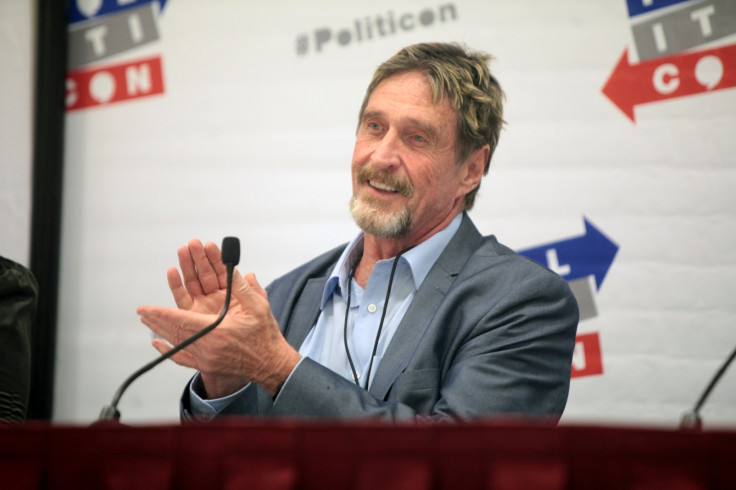John McAfee goes rogue, says he will be 'toiling in obscurity' after MGT split
The tech pioneer said that he was "very happy" with the decision to leave MGT.

Tech pioneer John McAfee is going it alone, departing the US-based MGT Capital Investments where he has worked in the roles of CEO, designer and cybersecurity visionary.
The outspoken ICO advocate, who has become well-known for boosting the profiles of little-known cryptocurrencies to his Twitter followers, first joined the firm in May 2016.
Now, after roughly two years, McAfee says he is looking forward to "toiling in obscurity".
The end of the business relationship, as MGT put it in a release, was finalised Friday (26 January). MGT says it will now consider options for its cybersecurity business, including a sale or spinoff.
The firm hopes to become a "pure play cryptocurrency mining operation", claiming negotiations are underway to triple its bitcoin mining power in the coming months. That will be led by Stephen Schaeffer, president of MGT Cryptocurrency Strategies, it said.
"I would like to thank [the] the entire board for giving me the opportunity to return to corporate life, but I am very happy with my decision," McAfee said in a statement. "I am looking forward to toiling in obscurity as the world's foremost authority of all things cyber and crypto!"
He continued: "In all candour, the past two years have been action-packed and productive, and I want to thank all shareholders for their support. I leave MGT in much stronger condition than when I arrived and remain a major stakeholder." Shares fell 8.4% following the announcement.
Since August 2017, after stepping down as CEO, McAfee helped to design security and anti-hacking products including a firewall box called Sentinel and a so-called privacy phone. Since then, however, he has become more interested in speaking about cryptocurrency.
Coin Of The Week now coming at random days and times each week. If you're around at those times then good.
— John McAfee (@officialmcafee) January 26, 2018
"The decision was mutual," McAfee told Bloomberg News. "My interests have shifted almost 100% to the crypto [currency] world and I no longer wanted to divide my focus."
MGT's chief executive officer, Robert Ladd, said the split was "amicable" but indicated that the decision was in part due to an ongoing attempt to get the business re-listed onto the New York Stock Exchange (NYSE).






